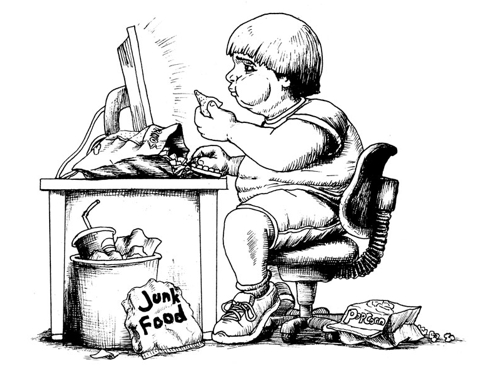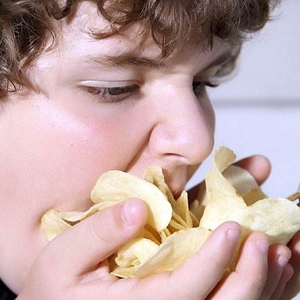During a pandemic when Fast Food sales are coming to the fore, the British government is entertaining the idea of banning TV ads for ‘junk food’ before 9 p.m. And a blanket ban on ‘sweets and Fast Food’ ads online has also been put forward, among other anti-obesity measures…
 The UK moves to ban Junk Food ads on TV in the early evening, when
The UK moves to ban Junk Food ads on TV in the early evening, when
kids are most likely to be watching, and at all times online…
According to a headline story in the online Observer: “Other measures include a ban on chocolates, crisps [Salty Snacks] and sweets at the checkout and displaying calories on menus in restaurants and pubs, including for alcoholic drinks, which are estimated to account for nearly 10 percent of the calorie intake of those who drink.”
A sweeping move
If all the proposed measures are mandated, it would be one of the largest, most broadly based programs ever to be enacted by a Western democracy against what are perceived to be the main causes of obesity, which is described by the UK government as ‘a ticking time bomb’. Anti-obesity campaigners are delighted, but some experts say such a campaign ignores the fact that obesity is the result of a combination of biological, genetic and social factors, and not just a matter of personal choice.
“There is a risk that we once again fall into the trap of mainly focusing on individual responsibility,” Prof Andrew Goddard, the President of the Royal College of Physicians told the Observer. “We’ve been down this path before and it doesn’t work. We know the key to success in addressing obesity and other health inequalities lies in shared responsibility between individuals and the state.”
More action in the pipeline
While the proposed ad ban is a mainly passive measure, the UK lawmakers are also considering more-active companion active moves including an intensive public information campaign. Almost two thirds of adults in England are overweight or obese, and one in three primary school age children.
COVID-19 highlights UK obesity crisis
Nearly 8 percent of critically ill patients with Covid-19 treated in UK intensive care units have been morbidly obese, compared with just 2.9 percent of the general population, the Observer notes.
Not just obesity, either
Obesity and COVID-19 aside, high-Fat, high-Sugar foods have been linked to an increased risk for some cancers. Overall, 1 out of every 2 UK residents will be diagnosed with some form of cancer during their lifetimes. According to Cancer Research UK, almost half of all food ads shown on UK commercial TV outlets are for products high in Fat, Sugar and Salt, rising to almost 60 percent between 6 p.m. and 9 p.m. when they are most likely to be viewed by children and family groups.
So anti-cancer advocates are also happy something significant is being done about Junk Food advertising. But they, too, stress the critical importance of addressing the broader issue of eating a proper, balanced diet and taking promoting a more-active lifestyle.
What about ‘the nanny state’?
Those who oppose greater government regulation of what are often seen as private issues have long tried shaming their governments and officials about bringing in what objectors call ‘the nanny state’. You’d think that Prime Minister Boris Johnson would be among the nay-sayers. After all, he campaigned against the notions of ‘nannying or bossing’. But he told reporters late last week that his own personal experience in intensive care with COVID-19 was one of his main reasons for turning around and supporting interventionist measures’ against obesity.
My take
I’ve never cared much for the wonky logic and whining attitude of those who most vociferously condemn any new measure that would represent ‘the rise of the nanny state’. They’re like the folks in the U.S. who’ve caused the recent shocking resurgence of COVID-19, claiming that wearing face masks, having to socially distance and staying home are constitutional or political issues. Clearly, such issues are pubic concerns, and we must all play ball with them or they won’t work to combat the pandemic. My position is simple: anti-maskers are welcome do what they want in their own homes and yards – but don’t do it in public where it might effect my health or safety, or that of my family or friends.
Come to think of it… Obesity is just as serious a public health issue, in as much as it’s costing us all hundreds of billions of dollars a year through our already overburdened health care systems. Anything that helps fight obesity is okay with me.
~ Maggie J.

